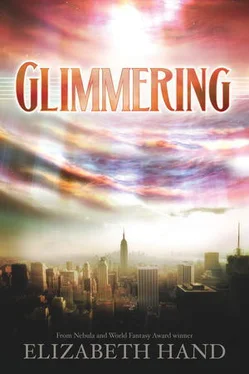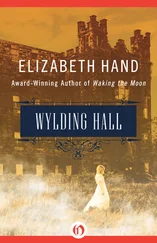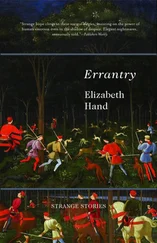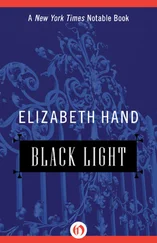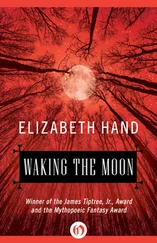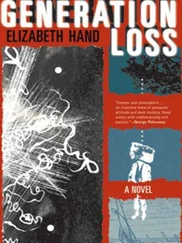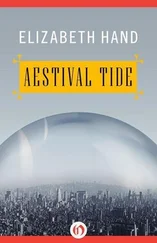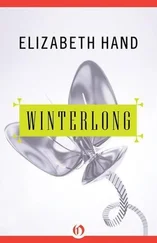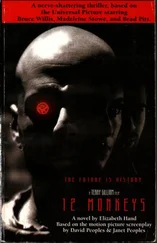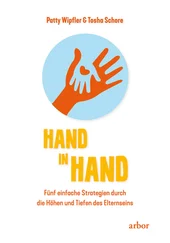And perhaps it was, Jack mused as he checked the answering machine for the fourth time in an hour. There were no messages, had been no messages. The phone never rang. Power might have been restored to most of the metropolitan New York grid, but for some reason it didn’t extend to the telephone system. For all he knew there would be no messages for the rest of his life, but still Jack couldn’t stop fiddling with the machine, picking up the phone to see if there was a dial tone. There never was. Three, four, seven times a day he’d go out to the carriage house, peer into the fax machine, and check his computer for e-mail. Jack didn’t like to admit it, but he was looking for Larry Muso, in all the old familiar places. And since there had never been much Larry Muso to begin with, the search was frustrating and ultimately depressing.
Now he sank into the same wicker chair where eight months ago he had sat with The Golden Family’s envoy, and picked up (not for the first time) the copy of The King in Yellow. Opened it at random and read.
THE LOVE TEST
“If it is true that you love,” said Love, “then wait no longer. Give her these jewels which would dishonor her and so dishonor you in loving one dishonored. If it is true that you love,” said Love, “then wait no longer.” I took the jewels and went to her, but she trod upon them, sobbing: “Teach me to wait,—I love you!”
“Then wait, if it is true,” said Love.
He waited. What choice did he have? It would not be much longer. Christmas was approaching, and his New Year’s Eve bash in the shadow of a corporate temple. The end of the century, the end of the millennium.
The end of the Kali Yuga? he wondered, watching for the hundredth time Stand in the Temple’s video on TV and that iconic singer Jack couldn’t help but think of as another emissary from GFI. Trip Marlowe, his name was: Jack learned that by sitting through one of the legion of interviews, documentaries, flatulent news bulletins, and good old-fashioned commercials promoting the band.
“This is so shameless.” Onscreen, Trip Marlowe spoke in reverential tones of the work being done by multinational corporations to restore the environment.
“… like, in the Rockies, they’re trying to reestablish all these extinct species of frogs, and in some places people, like, heard the frogs singing for the first time in ten years …”
“What, dear?” Keeley raised her head; she had been asleep. “I’m sorry…”
“Oh, nothing.” Jack sprawled on the couch, disgusted equally by the singer’s ingenuous blue-eyed gaze and his own lassitude. “It’s just—I mean, look at this guy! It’s like his entire face was reconstructed or something, he looks like he was designed by some damn corporate committee. He probably was. ” He reached for the remote.
Keeley peered at the screen. “Is that what’s-his-name? The one with the nose job and the face?”
“No. I mean yes, this one probably has a nose job, but it’s a different nose. Jeez.” He flashed through channels, more than had been available for a year. Bombs exploding above the desert somewhere (Texas? Algeria?), an ad for a winged Barbie that morphed into her own makeup-equipped carrying case (just in time for Christmas, Supplies Very Limited), talk shows featuring people claiming to have spoken with deceased loved ones, a bit on CNN about the upcoming millennial New Year’s bash being hosted by GFI Worldwide in New York City.
“Hey!” said Jack. “That’s—”
He almost said, “That’s my party.” But then remembered he had never mentioned GFI’s invitation to Keeley or anyone else.
Keeley nodded absently. A moment later she began to snore, leaving Jack to stare at a video montage. GFI’s brazen airships in formation against an indigo sky; sturgeon slitted open so that their roe spurted onto dirty grey ice; a vault filled with ranks of champagne bottles; vintage limousines; a Japanese woman being outfitted in a stiffly embroidered kimono four times as large as she was; an aerial shot of some kind of arena, swelling out from one side of the Pyramid like a wasps’ nest and covered with workers and scaffolding and construction equipment. Then the arena faded, replaced by the shuffled images of two or three hundred people Jack assumed must be famous for something. He only recognized a few of them—the beloved sports figure disfigured by petra virus, a much-married millionaire Jack had thought was dead. And the ubiquitous Trip Marlowe, natch, dancing on one foot atop a Day-Glo Sphinx.
“… billing it as the most fabulous bash since King Tut partied on the Nile!” exulted the announcer.
The segment ended and another began, this one about millenarian cults like the Montana-based Cognitive Dissidents, who were planning their own mass suicide at the stroke of midnight, December 31. There was a commercial for telephone insurance. Then a few more worried-looking people speculated about the end of the world. Jack made a rude noise. He turned the volume off, but left the TV on—he was superstitious about turning it off—and went into the kitchen.
It was hard to believe that anything was coming to an end, except for Lazyland’s supply of coffee, which was dismayingly meager: only one vacuum-sealed bag remained. Leonard was their sole link with the world of such luxuries, but Leonard had not returned to Lazyland since he’d brought the Fusax. And Jack knew better than to hope that coffee would materialize on the shelves at Delmonico’s during one of his forays there for supplies.
Still, later that morning he was amazed to see what Delmonico’s could produce. Christmas was only a week off. Mrs. Delmonico had brought out the old cardboard decorations—Santas and elves and angels, all from Finnegan’s Variety Shops circa 1967—and strung up tired garlands. Like some old-time general store, the venerable Yonkers grocery had begun to exhibit delicacies of the season. Oranges in wooden crates, their knurled skins more green than orange, and fist-sized pomegranates wrapped in varicolored tissue. (The paper could be used for wrapping presents, Mrs. Delmonico advised Jack. Wasn’t it pretty?) White rabbits and evil-looking chickens dangled upside down from their feet above the butcher counter. There were boxes of handmade toys, cars and boats and rocket ships carved from Popsicle sticks, sock puppets, old Barbies whose plastic faces had been scrubbed and repainted with ballpoint ink, dressed in new hand-stitched clothes.
And one afternoon, beneath a churning claret sky, an ancient pickup truck pulled up in front of the grocery, its bed piled ten feet high with—
“Christmas trees!” exclaimed Jack.
A crowd was gathering, fellahin who camped at Getty Square and a few wary shoppers like Jack, who carried baseball bats and wore football helmets. A fellahin girl, dressed in shredded garbage bags, stood on tiptoe beside the truck to breathe in rapturously.
“I remember these! ” she cried.
Jack smiled. He moved closer, lifted his surgical mask, and touched the soft boughs behind their protective plastic mesh. The trees were leggy, their limbs swept into torturous angles by the webbing. He ran a finger along one slender branch. Needles rained onto the truck bed—it was covered with needles, rust-colored and greenish yellow, and twisted pine cones like arthritic fingers, and scaly bits of bark.
But then Jack closed his eyes. Immediately darkness was there, the expectant predawn hush of a house buried in snow, whispers from his brothers’ bed and that smell, the holiest scent he had ever known: evergreen. To Jack that had always been Christmas. Not the toys, not the lights, not even the baby in the barn, but this: night and bitter cold, snow beneath and desolate stars above, a green tree in the wood that breathed in the darkness but breathed out spring.
Читать дальше
